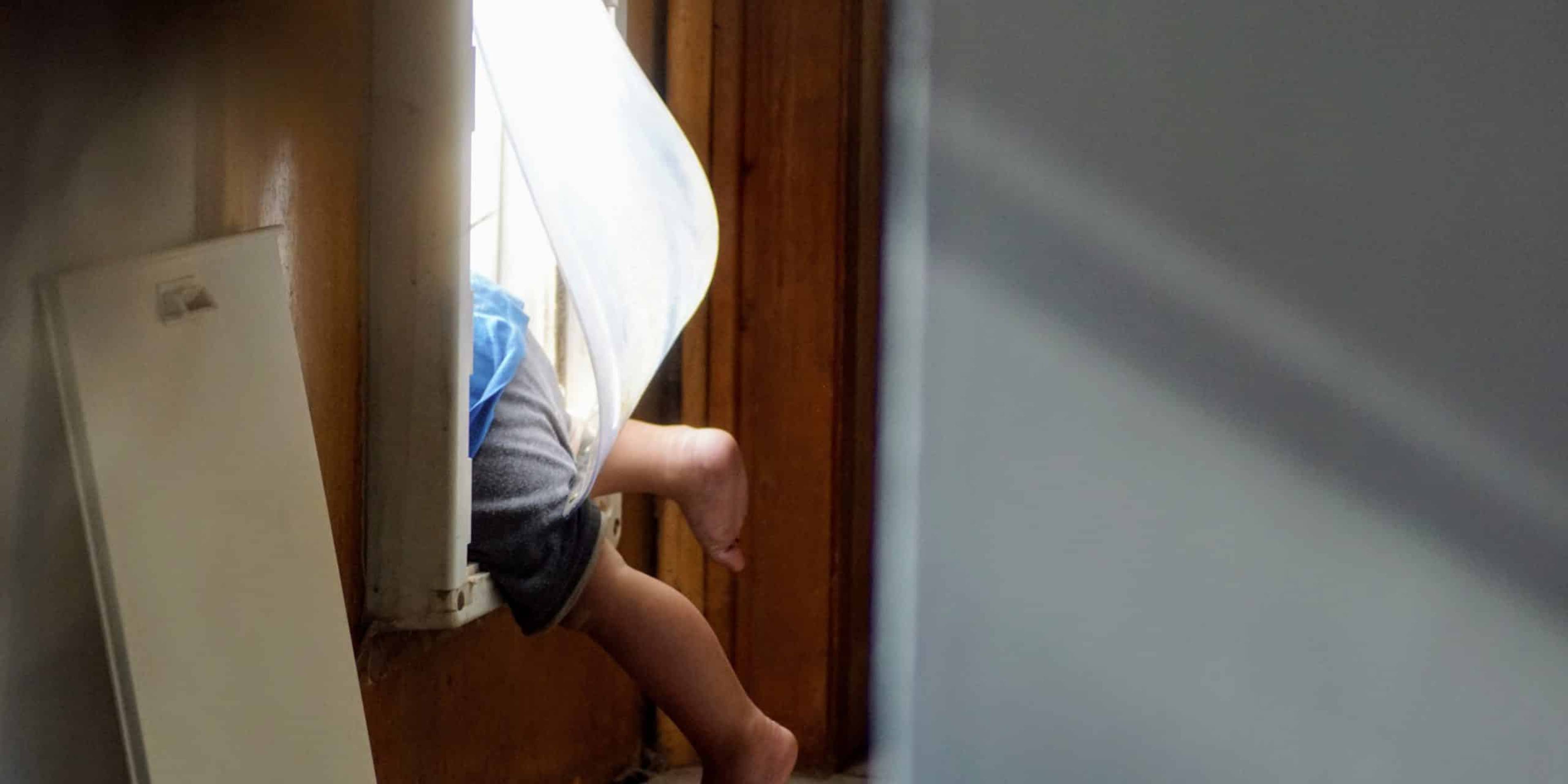April 05, 2021
Help, my young child is told not to do something, but keeps doing it!

Parenting young children is hard! They will often ignore clear orders not to do something and this can be a source of concern for parents. Parents may worry that their child seems truly disobedient and can feel exasperated by it. They might worry that their child knows that something is ‘wrong’, yet still does it, or that their child will never grow out of such behaviour and they may never get a handle on it. They might worry about such behaviour affecting friendships and their child’s performance at school. But, let’s consider it from a young child’s perspective…
Parenting young children is hard! They will often ignore clear orders not to do something and this can be a source of concern for parents. Parents may worry that their child seems truly disobedient and can feel exasperated by it. They might worry that their child knows that something is ‘wrong’, yet still does it, or that their child will never grow out of such behaviour and they may never get a handle on it. They might worry about such behaviour affecting friendships and their child’s performance at school. But, let’s consider it from a young child’s perspective. The first time they hear them, parental commands not to do something may be quickly forgotten or gently ignored and this is not without good reason. Your child might be busy, in the middle of a game or staring out the car window when your request comes in.
First of all, we need to think about how and when we ask children not to do something. If they are hungry and we ask them not to touch the biscuits on the table before lunch, it can be difficult to expect compliance. If they are bored at the supermarket walking behind the trolley, how can we expect them not to touch things? Try to think in advance about what you want them to do/not to do. When you are communicating this, touch them on the shoulder to gently get their attention first, and make sure that you look them in the eye. Use clear and simple language. Praise them for listening and check that they have understood.
In those first few moments, when your child might be wrestling with compliance, praise them for being so well-behaved; ‘catch’ their patience and spot their good behaviour. Tell them you know it is hard it is to wait when we want something, and tell them how proud you are of them. When praising their behaviour, use your whole face, gestures and tone to convey positivity towards them. Remember that effective parental praise is like the sun shining on that little face; welcome, powerful and incredibly motivating.
When you remove something from a child (such as the ability to play on a digital device before dinner, the iPad in the car, biscuits before tea, etc.), then consider giving them agency in other ways. “You can’t have the iPad until after dinner, but you can (a) read your book, (b) do a puzzle or (c) play with your Lego”. Agency and distraction are great parenting tools!
When it comes to behaviour between siblings or where you are trying to encourage kindness between children, young children can struggle. Frustration can lead children to act out, hurt or hit one another and in turn this can test parental patience. If you are about to go on a playdate, have a good chat about how you expect them to behave and the consequences of poor behaviour. Perhaps courtesy and kindness shown towards others on the playdate might be rewarded by a little treat on the way home in the car?
Be prepared to see the rule and its consequence through. Sometimes we parents can (unwittingly) be rather inconsistent, which can encourage rule-bending or breaking. For example, one parent’s rule might be totally contradicted by another carer. We have all been guilty of asking children not to do something and then turning a blind eye to their disobedience, either because we are in a hurry, busy or just worn out. So whatever rule you decide to apply, make sure that all carers are onboard with it and that you see it through.
No matter the age of your children, always look for flashpoints within family life or triggers for any frustration. You don’t have to be a researcher to quickly work out what the patterns are and how situations can easily escalate. Are there always arguments at teatime when everyone is tired and hungry? Decide as a family to change things, to move out of familiar patterns of conflict and to do better.
When parenting young children, pay great attention to the quality of their sleep, as a lack of sleep can affect children’s daytime behaviour, mood and levels of compliance. In general, be loving, but also authoritative. We know that children raised in an authoritative home are more likely to have more positive outcomes across the board. Cuddles, clear boundaries and consequences are optimal for children, as is a secure, stable and consistent family life.
Finally, remember to enjoy your young children. They are only little for such a short time and one day those struggles you had to get them to eat their vegetables will seem like a distant and very funny memory… promise!
More Parenting Questions

Mar 20, 2025
Help! My five year old is wetting the bed at night. What can I do?
You're not alone! Nocturnal enuresis, or bedwetting, is common in young children. We've asked paediatrician, Dr Christine Riyad, for advice.

Mar 17, 2025
My 10 year old is experiencing big emotions. Do you have any advice?
We've asked Dr Sophie Nesbitt, Consultant Child Psychologist, for her top tips.

Feb 12, 2025
Is it ok for my four year old to still use a dummy?
It's completely natural to feel concerned when your child continues using a pacifier or sucking their thumb beyond the toddler years. We've asked paediatrician, Dr Christine Riyad, for advice.

Dec 31, 2024
My son wants to buy his girlfriend an 18th birthday present. Help!
Give yourself a pat on the back as your teen is asking YOU for advice. It is a sign that there is good communication between you, and that he sees you as a source of knowledge! I think his question is a wonderful one. Why? Because it shows he values the relationship, recognises the importance of a milestone birthday and knows that gift-buying is not a simple activity.

Dec 18, 2024
What do we need to consider when thinking about hiring a tutor?
Private tutoring can be a great way to support your child's education, but finding the right person can also feel overwhelming. The tutoring industry is largely unregulated in the UK and so it can be challenging to know where to start or what to look for.

Oct 22, 2024
My 11 year old daughter is always hungry. Should I be concerned?
This is a common concern for many parents. Engaged and attentive parents are generally mindful of their child’s relationship with food. This is not surprising given the shameful narrative surrounding the idea of being overweight or obese, and the association that is often made that this is linked to neglectful parenting.

Jun 03, 2024
How can I best support my son with changes to his class next year?
Firstly, it is normal to worry about changes that lie ahead for our children and to worry about their ability to cope. You aren’t alone. The start of a new academic year is always full of changes to school life. New classrooms perhaps? Timetables? Teachers, pupils, curricula, canteen menus? You sound like you are holding a lot of anticipatory anxiety about the changes that are forthcoming. These changes have likely been explained to you by the school, and perhaps you still feel fearful?

Apr 22, 2024
How can I support my teen through a break up?
Early teen romances can certainly feel exciting and exhilarating but most are also short-lived, and supporting our children through them is something we will likely have to do several times over the years to come. Here are some tips to help you to support your daughter.

Feb 13, 2024
How can I support my child’s move to a new school where he doesn’t know anyone?
Hello! Thanks for your question. When I was reading through it, the thing that stood out first was the description of your son as unconcerned about impending changes and “confident socially”. This is good news indeed and bodes well, although, as you suggest, it is prudent not to assume that he has zero concerns at all about the upcoming school move.

Aug 03, 2023
What do we need to consider when buying our child a smartphone?
First of all, well done considering this important decision ‘as a family’. Buying a first phone for a child can be a financial commitment but, truth be told, it’s also a decision that can impact on all aspects of their lives: mental health, wellbeing, resilience, friendships and even their learning. It is important to think of it as a significant decision which deserves research and reflection. A smartphone isn’t just a phone. Essentially, it is a hand-held computer that, once connected to the internet, can give access to a digital frontier occupied by five billion people.